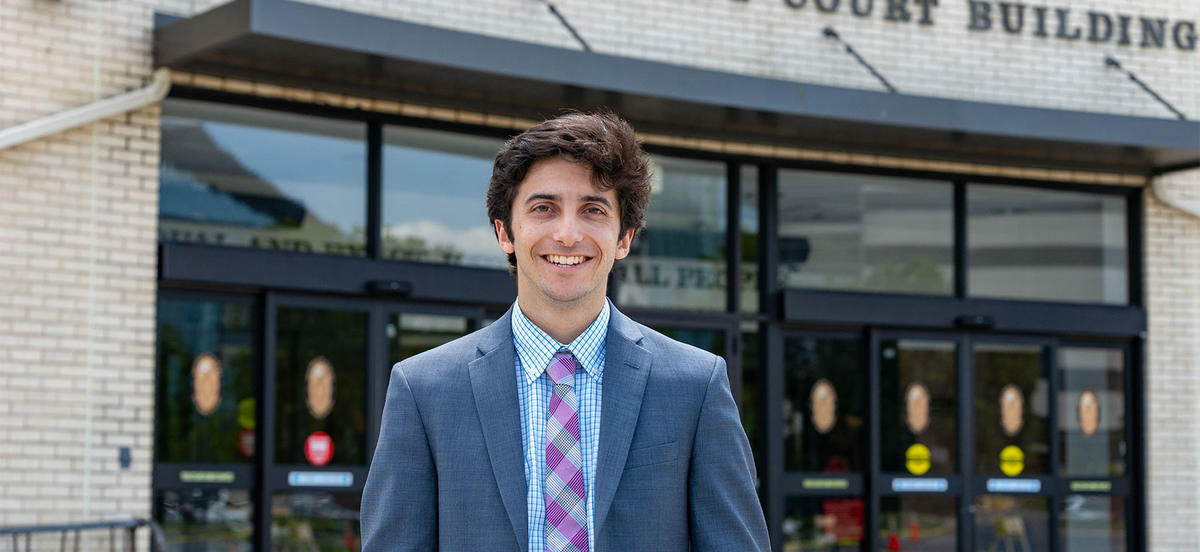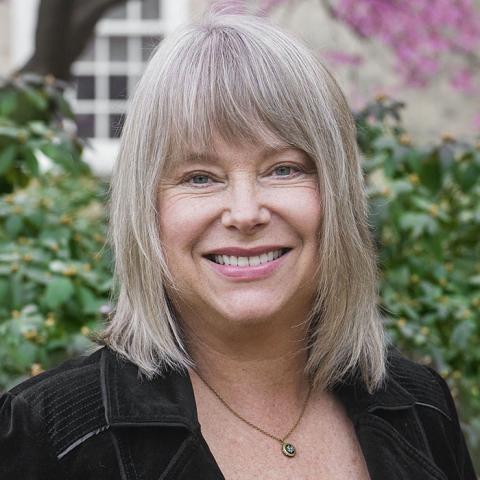Summer Centered: Noah Tunis ’25 Works Toward Justice in the Legal System

Details
Supported by the Center for Peace and Global Citizenship, Tunis is spending his summer assisting in the Baltimore Office of the Public Defender.
When he was in high school, Noah Tunis ’25 started a Students for Prison Reform club, hoping to play some small part in addressing the inequities of the criminal justice system. After a teacher introduced him to Todd Oppenheim, a supervising attorney in the felony trial unit at the Baltimore Office of the Public Defender (OPD), he got his first real glimpse of what it’s like to work with those aims in mind.
With the support of the Center for Peace and Global Citizenship, Tunis has spent this summer back at the OPD, working with Oppenheim as a law clerk. He’s watched the body-worn and security camera footage provided in each client’s case, listened to the statements and 9-1-1 calls entered into evidence, and participated in client meetings. With Oppenheim’s guidance, Tunis has helped write legal motions and sat beside clients at trial.
Because the OPD is “overburdened, understaffed, and underfunded,” Tunis has been thrown into the thick of it, learning about legal writing and research, as well as how to structure and try a case. To that end, the public defenders have been a model of hard work and commitment to the cause, he says.
“Getting to work alongside them and learn from them is such a privilege,” Tunis says. “It’s some of the best legal experience I could ask for, especially as an undergraduate student.”
As a philosophy major at Haverford, Tunis has been able to apply his classroom education in history, sociology, and psychology to his work within the legal system, strengthening his problem-solving along the way. And the problems to solve are numerous. He’s seen how the office’s clients struggle with probation and parole, financial security, and maintaining a stable home life—and how those issues complicate and contribute to their relationship with the legal system.
“I am learning how confusing, complex, and frustrating the system is, and gaining compassion for how difficult it is for our clients to navigate it successfully,” says Tunis.
The internship has given him perspective, helping him understand how he can serve the greater good by using his education to help others. As he considers the possibility of attending law school after graduation, he knows he wants to improve the justice system in some way.
A recent experience clarified for Tunis just how meaningful his internship has been. After spending weeks preparing for the trial of one of the office’s clients, Tunis got to sit through the entire trial and see that client win a verdict of not guilty. Watching Oppenheim argue the case was “inspiring and energizing,” he says, and speaking with the client and their family afterward was a powerful experience.
“Every day I show up and I understand exactly why I need to work hard,” Tunis says. “I’m surrounded by people who care about the same things I do, who are working every day to make a better world. I am so grateful for that.”
—Ben Seal




